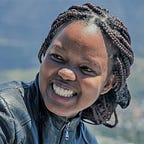Re-engineering of Newsrooms and Rise of Civic Technology in Lagos, Nigeria
A recap of the d|Bootcamp Lagos 2017
In my previous life, I worked in the tech & startup world, and as a result, ended up attending, organising, and hosting, many hackathons. I thought I had seen it all in the hackathon circuit, especially in this corner of the world, but Lagos — was a fantastic surprise.
Last week, Code for Africa in partnership with the Global Editor’s Network (GEN), the News Agency of Nigeria (NAN) with the support of Google (West Africa), held a joint digital/data journalism workshop and hackathon.
The media landscape has rapidly evolved in the last 5 years , leaving traditional media houses grappling with how to effectively harness new technologies for better storytelling / news delivery / business model re-engineering. One of the most important outcomes of this growth era has been data journalism — which has effectively combined journalism + technology.
In Africa, the rise of the smartphone has been the first point of contact with the internet — with many now consuming digital content on their phones, including news.
Nigeria has a population of 182 million, — with half below 30 years of age. Lagos city in Nigeria alone has a population of 21 million. That is almost half of Kenya’s total 43 million population. According to Financial Times, over 70 per cent of this fast urbanising population are under 30.
“The first thing they want is a phone and the next is information,” says Aly Khan Satchu, a Nairobi-based investment analyst.
Therefore investing in increasing the capacity of journalists and newsrooms to embrace digital/data literacy to deliver news in a way that is consumable and impactful using evidence-based storytelling has become a key prioritization for media houses, and not just in Africa.
Code for Africa has been working with newsrooms and other digital media outlets in Africa over the past 5 years — working with both journalists and editors across print, tv, radio and online to embrace data tools, evidence-based storytelling and merging / integrating technology into newsrooms. One of the ways in which we do engage with newsrooms & the wider civic tech community is through the data bootcamps (d|Bootcamps), held in over 29 cities since 2010.
Outcomes:
Think of Code for Africa as socket plug that connects media houses with the replicable, scalable technology that re-engineers newsrooms. This means we train journalists and engage Editors on how to use e.g data to tell better stories, that — like in the Lagos d|Bootcamp theme — help hold political powers accountable for their actions and promises.
“When journalists combine new technology with narrative skills, they can deliver context, clarity, and a better understanding of the world around us…journalists are creating news apps and interactive features that help people understand data, explore it, and act upon the insights derived from it.” — Alexander Benjamin Howard.
Some of the projects ideated and prototyped during this d|Bootcamp and GEN hackathon include:
1. Moja (Winning Protoype)
Moja is a system designed to compare the needs of a community (Federal constituencies in Nigeria) to the projects actually done in the community. It works by giving details of a constituency project and allowing residents of the constituency to tell if the project is really needed and if it is working.
2. iVerify :
iVerify provides crowd-sourced, citizen report, geo-located data through pictures and comments to assess the state of public infrastructure, provide data for the public to draw attention to infrastructural deficits and gaps, hold government accountable for its promises by following the money, measure government’s response time to public demands and performance at the end of their tenure. For government, it gives pointers on what requires urgent attention, and provides a scorecard.
3. ORUData:
ORUDATA is an iReport platform that empowers citizens to report on the functionality of existing water points within the communities, thus holding political office accountable. ORUDATA will influence the increase of access to safe water, Budget Accountability , Sustainability and functionality of existing water points within the communities.
The winning team will go to Vienna, Austria, competing against other global teams during the GEN Summit in June 2017. The winning teams will receive additional technology support from Code for Africa, including access to replicable technology to re-engineer newsrooms, and data journalism resources.
Thank You
Despite the Abuja airport closing just a day before the d|Bootcamp, the amazing mentors and trainers still made it to the event.
Thank you to all our trainers and mentors — Blaise Aboh, Joshua Olufemi, Samuel Atiku, Seember Nyager and Oluseun Onigbide , Nkechi Okwuone and Evangeline de Bourgoing, Emilie Kodjo and Jacopo Ottaviani and Azubueke Ishiekwene and Taiwo Kola-ogunlade (Google); and to our partners, GEN, NAN and Google.
The d|Bootcamp in Lagos was based on a Code for Africa model first pioneered in Kenya in 2012 that has since been adopted across the world, with 32 bootcamps hosted in 29 countries. The Lagos event follows Code for Africa’s earlier pioneering work in Nigeria, where it partnered with the World Bank to help kickstart data scraperthons during a one-week d|Clinic and d|Storycamp in 2014 and 2015 respectively. You can find all the projects from this d|Bootcamp Lagos here.
